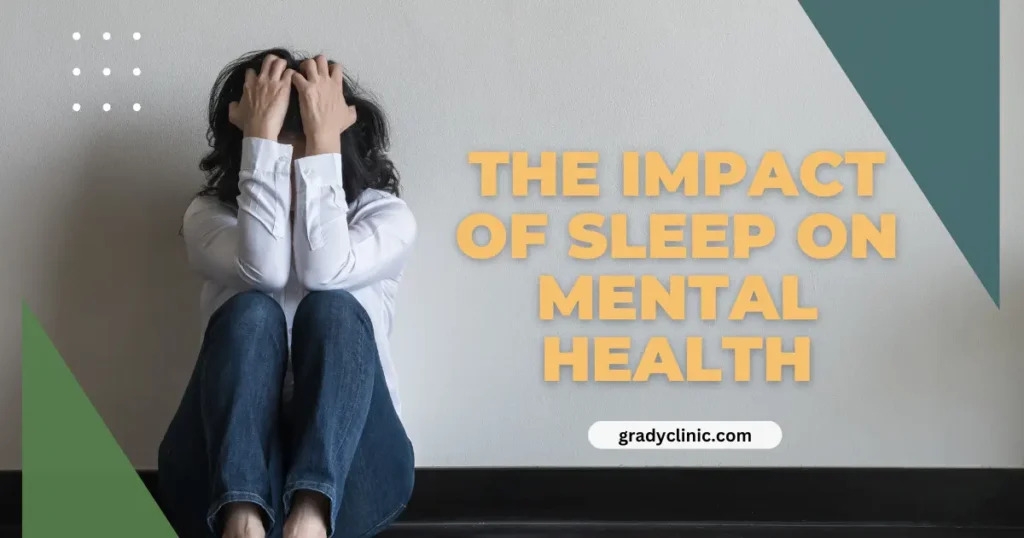Why Quality Sleep is Essential for a Healthy Mind

Sleep plays a key role in brain function and emotional stability. It supports cognitive processes, regulates emotions, and reduces stress. Poor sleep increases the risk of anxiety, depression, and impaired thinking.
The Connection Between Sleep and Mental Health
The brain restores itself during sleep. It processes emotions, strengthens memories, and repairs neural connections. When sleep is insufficient, brain activity is disrupted, leading to mood swings, lack of focus, and heightened stress.
Effects of Sleep Deprivation on Mental Health
- Increased Anxiety and Depression
- Poor sleep raises stress hormone levels, making anxiety worse.
- Chronic sleep loss is linked to an increased risk of depression.
- Weakened Cognitive Function
- Sleep strengthens memory and improves concentration.
- A tired brain struggles with problem-solving and decision-making.
- Emotional Instability
- Lack of sleep reduces emotional control.
- People become more reactive and sensitive to stress.
- Higher Risk of Mental Disorders
- Persistent sleep issues may lead to severe mental health conditions.
- Insomnia is a common factor in psychiatric disorders.
Physical Effects of Poor Sleep
- Increased Stress Levels – The body produces more cortisol, leading to prolonged stress.
- Fatigue and Low Energy – Sleep deprivation results in persistent tiredness.
- Weakened Immune System – Poor sleep lowers the body’s ability to fight illness.
- Hormonal Imbalance – Sleep regulates hormones that affect mood and appetite.
Ways to Improve Sleep for Better Mental Health
- Maintain a Consistent Sleep Schedule
- Sleep and wake up at the same time daily.
- This helps regulate the body’s internal clock.
- Optimize Sleep Environment
- Keep the bedroom cool, dark, and quiet.
- Avoid bright screens and distractions before bedtime.
- Avoid Stimulants Before Bed
- Reduce caffeine intake in the afternoon and evening.
- Alcohol disrupts deep sleep cycles and should be limited.
- Engage in Physical Activity
- Exercise promotes better sleep quality.
- Avoid intense workouts close to bedtime.
- Practice Relaxation Techniques
- Deep breathing and meditation reduce stress.
- A bedtime routine helps signal the body to wind down.
- Reduce Screen Time
- Blue light from screens affects melatonin production.
- Limit phone and computer use before sleep.
Conclusion
Sleep is vital for mental health. It enhances emotional stability, memory, and cognitive function. Poor sleep increases stress, anxiety, and depression. By improving sleep habits, people can boost their overall well-being and maintain a healthier mind.
Sponsorluk
Site içinde arama yapın
Sponsorluk
Kategoriler
- Questions and Answers
- Opinion
- Motivational and Inspiring Story
- Technology
- Live and Let live
- Focus
- Geopolitics
- Military-Arms/Equipment
- Güvenlik
- Economy
- Beasts of Nations
- Machine Tools-The “Mother Industry”
- Art
- Causes
- Crafts
- Dance
- Drinks
- Film/Movie
- Fitness
- Food
- Oyunlar
- Gardening
- Health
- Home
- Literature
- Music
- Networking
- Other
- Party
- Religion
- Shopping
- Sports
- Theater
- Health and Wellness
- News
- Culture
Read More
Best way to find Punjabi Matrimony grooms in Abroad
Punjabi girls in foreign countries prefer to marry a partner within the community. Choosing the...
Egg Allergy Market Size, Share, Trends, Demand, Opportunities and Competitive Analysis
Global Egg Allergy Market' - Size, Share, Demand, Industry Trends and Opportunities
Global Egg...
Indian Navy’s Project-75I – German TKMS Leads Spanish Navantia After Field Trials For AIP-Submarine Deal
German submarine-builder ThyssenKrupp (tKMS) and its Indian partner Mazagaon Dockyard Limited...
"Nuclear Medicine Market Dynamics: Key Trends and Forecast for the Next Decade"
Nuclear Medicine Market Overview
Nuclear Medicine is a branch of medicine which uses radioactive...
Laboratory Slides: Essential Tools for Education and Research
Laboratory studies are the backbone of science education and advanced research. Among the wide...
Sponsorluk

